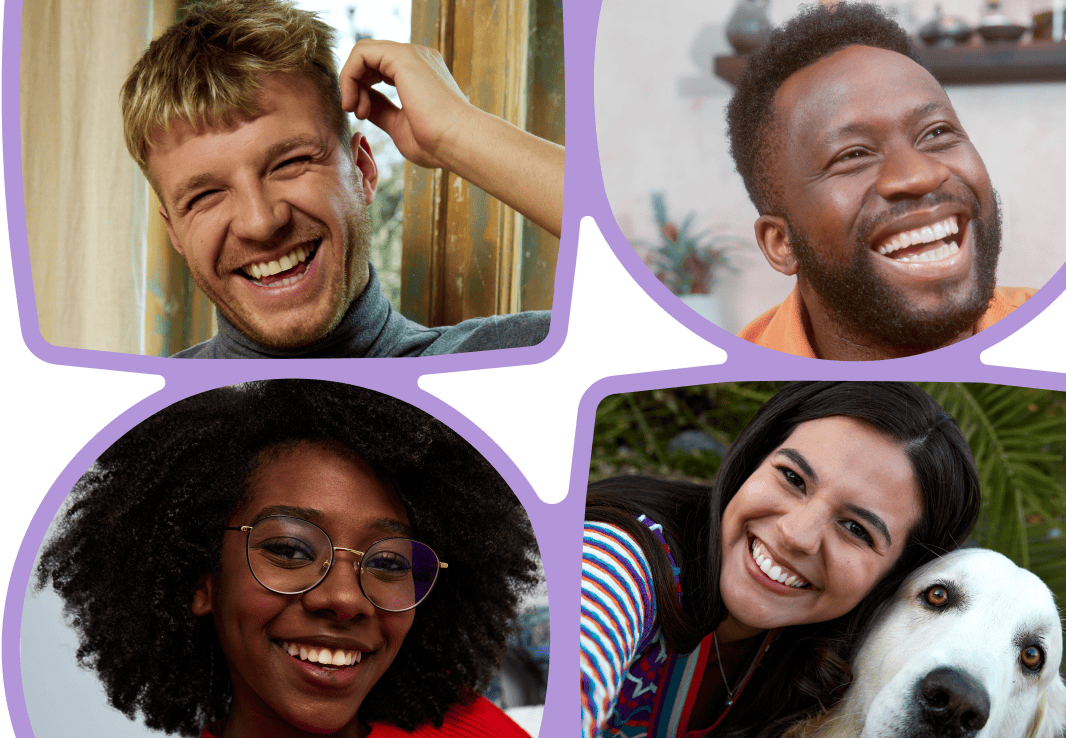Myers-Briggs, Love Language, ‘pick your favorite breakfast foods and we’ll tell you who your soulmate is’ Buzzfeed quizzes – we’re obsessed with personality tests. A quick scroll through TikTok or browse on social media quickly demonstrates our culture’s fixation with them– and specifically, what they tell us about our love lives. Move over star signs, we’re getting intellectual now.
Why are we turning to compatibility tests?
Let’s be honest, dating can be a bit of a minefield. From failed talking stages to being dumped out of the blue - it’s easy to feel like we’re constantly going for the wrong type of person. Trying out a personality test is fun, and the results can tell us a little bit about ourselves and the traits that we appreciate in other people.
Take the Love Language test for example - by answering a few questions, the results tell us what ‘love language’ most appeals to our personality. The results include acts of service, words of affirmation, physical touch, quality time, and receiving gifts. Knowing which one we identify with most can be useful for relationships because it highlights what’s most important to us and gives us an insight into what we need from a potential partner. Some of us need words of affirmation to feel appreciated, while others might find that spending quality time with a partner is all that’s needed to feel secure and happy.
They’re a great tool to help us communicate our needs to a prospective partner and vice versa – knowing our partner’s love language can help us show our appreciation. If they love acts of service, we know that making them a cup of tea or washing up the dishes after dinner is a sure-fire way to show them we care. But the results aren’t like a cheat code to a PlayStation game: we still need to talk to our partner to find out what’s important to them, and to explain what we need in turn.
Nowadays, people are even populating their dating profile bios with information about their Myers-Briggs personality type and asking their dates to take the test too. This test is meant to give us a framework for our own personalities: what energises us, what drains us, how we learn, how we organise, what we’re attracted to. Sure, this is a fun activity to do together – and it can offer some insight into what makes our dates tick - but the test was actually designed during World War II as a workplace tool to figure out which job people were most suited to. Do we really want to assess our date like a candidate for a job interview?
Are compatibility tests actually accurate?
While compatibility tests are fun to fill out and a cool way to learn more about ourselves and our dates, they aren’t exhaustive summaries of our personalities. They won’t be able to pick up on the tiny things that make us who we are – like how we give up our seats for old people on the bus, or always make sure we’re on time for a date. They won’t tell us if the person we’re dating is rude to waiters or if they have a habit of talking with their mouth full. These are all things that we learn in our own time – and we only learn them by taking a chance.
The accuracy of these tests is up for debate too: who amongst us hasn’t tweaked our answers to a personality test because we want a more favourable result? There’s no use in us basing our search for romance on a test that might not actually be accurate. Plus, if we’re relying on a personality test to work out who we should be going for romantically, that could be a sign that we need to do a little bit of soul searching to work out our priorities. A personality test might give us food for thought, but the results should be used as a prompt to get us thinking, not taken as gospel.
Compatibility vs chemistry
If we limit ourselves to only dating the kind of people that a test tells us to, we’re setting ourselves to miss out on potentially great, unexpected experiences. The saying that opposites attract isn’t a saying for no reason – chemistry has a massive part to play in who we fall in love (or like) with.
The idea that a compatibility test knows us better than we know ourselves is a bit ridiculous if you stop and think about it. Our gut feeling about people is often the best indicator of whether a date is going to go anywhere, and surely it’s better to rely on that than a quiz which was created almost 60 years ago.
When it comes to finding our ‘most compatible,’ our best bet is to stay open-minded and allow ourselves the opportunity to date all kinds of people. We might be surprised by who we gel with, or we might find out our suspicions (and results) were correct.
Either way, let’s stick with our instincts and keep the compatibility quizzes for a 10-minute procrastination session during work – way more fun.




